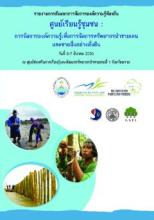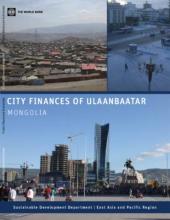Land Library Search
Through our robust search engine, you can search for any item of the over 73,000 highly curated resources in the Land Library.
If you would like to find an overview of what is possible, feel free to peruse the Search Guide.
/ library resources
Showing items 1 through 9 of 29.The AgriTech Toolbox enables researchers and policymakers to examine how alternative agricultural practices and technologies can impact farm yields, food prices, natural resource use, hunger, malnutrition, land use and global trade in 2050, when climate change impacts may be severe.
รายงานฉบับนี้ นำเสนอความสำเร็จด้านการจัดการทรัพยากรป่าชายเลนและชายฝั่งของชุมชน ที่ต่อมาได้มีการพัฒนามาเป็นโครงการเสริมสร้างความเข้มแข็งของเครือข่ายการจัดการทรัพยากรชายฝั่งโดยชุมชนในพื้นที่ 6 ตำบล ในจังหวัดตราด เพื่อต่อยอดรูปธรรมที่ทั้งชุมชนและโครงการต่างๆ ได้พัฒนาขึ้น การดำเนินงานขับเคลื่อนผ่านกา
Land is a vital resource that sustains livelihoods across Sub-Saharan Africa, but also one that is heavily prone to corruption.
Devolution is one form of decentralization. Decentralization is defined as the process of dispersing power from the centre to lower levels of government. The other forms of decentralization include de-concentration, delegation and privatization.
Public participation is an action or a series of actions a person takes to involve themselves in affairs of government or community.
The constitution of Kenya 2010 established a devolved system of governance with 47 County governments. The constitution in schedule four also transfers service delivery in health, water and agriculture sector among other functions to county governments.
La reflexión sobre el consumo responsable o crítico y la soberanía alimentaria desde un enfoque con perspectiva feminista es todavía muy incipiente.
Publicación que gira en torno a la situación de las mujeres vascas dentro del sector agrario y rural, analizando desde una perspectiva feminista su condición y posición en torno al trabajo, la actividad económica y la acción política, fundamentalmente.
Ulaanbaatar's (UB) population has swollen from half a million in 2001 to approximately 1.2 million in 2011, accounting for over 40 percent of the country's population. This trend is likely to continue as economic growth is increasingly concentrated in UB.







